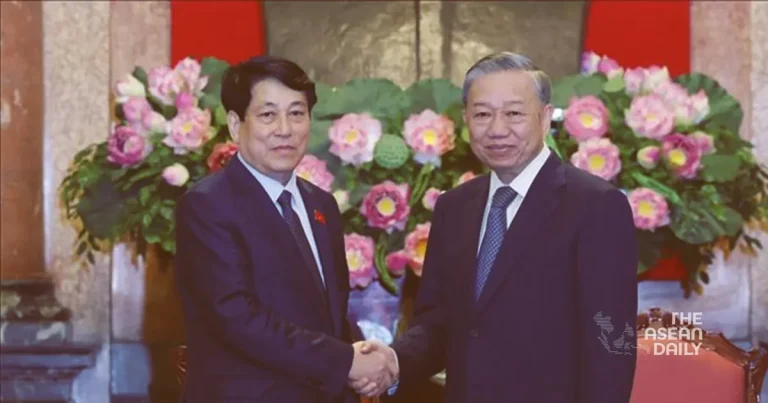22-10-2024 (HANOI) Vietnam’s National Assembly has elected General Luong Cuong as the country’s new president, marking the fourth change in leadership in just three years. The 67-year-old military veteran assumes office amidst hopes for stability following a tumultuous period in Vietnamese politics.
General Cuong succeeds To Lam, who held the presidency briefly before ascending to the role of General Secretary of Vietnam’s governing Communist Party in August. This rapid succession of leaders comes in the wake of an aggressive anti-corruption campaign that saw the ousting of two previous presidents.
Prior to his elevation, Cuong served as the secretary of the party’s central committee, holding the fourth highest position in the Communist Party hierarchy. Political analysts view his appointment as a strategic move to usher in a period of relative calm ahead of the crucial 2026 Party Congress.
Dr Nguyen Khac Giang, a visiting fellow at the ISEAS-Yusof Ishak Institute, noted, “General Cuong’s ascension signals a return to the principle of collective leadership, rather than a further consolidation of power under the General Secretary.”
The recent political upheaval in Vietnam, exacerbated by the death of former party chief Nguyen Phu Trong in July, has left many observers concerned about the country’s stability. However, Cuong’s military background, with over four decades of service, is seen as a potential steadying influence.
This appointment also highlights a growing trend in Vietnamese politics. Two-thirds of the 15-member Politburo, the nation’s most influential decision-making body, now hail from police or military backgrounds. While this shift towards “strong men” in leadership positions may provide short-term stability, some experts express concern about its long-term implications for Vietnam’s development.
“A more technocratic and civilian-led approach to governance might better serve Vietnam’s future aspirations,” Dr Nguyen added, suggesting that even General Secretary To Lam might prefer to see more reform-minded individuals in top positions as the 2026 Party Congress approaches.
In his inaugural address to parliament, Cuong, alongside other top Communist Party leaders, pledged to implement institutional reforms and drive economic growth. The National Assembly is set to convene for a month-long session to discuss critical laws and policies, including improvements to Vietnam’s energy infrastructure and the development of a high-speed railway system.
The business community, both domestic and international, is watching these developments with keen interest. Many are hopeful that the new leadership will expedite economic decisions that have been stalled due to political uncertainties in recent years.




